Mother Tongue Languages
Mother Tongue Languages (MTL) Department is dedicated to nurturing students in three key areas, laying a strong foundation for their growth and development:
Communication
- By mastering the MTL, students acquire essential 21st Century Competencies
for effective expression, building the groundwork for confident communication.
Culture
- Through immersive cultural experiences, students develop a strong sense
of pride and appreciation for the MTL culture, an integral part of Singapore’s
national identity.
Connection
- By exploring their heritage, students strengthen their connections to
their roots and build meaningful bridges to communities across Asia and
the world.
Beyond the national curriculum, our department offers a variety of programmes
and competitions to ignite a love for their Mother Tongue languages and
foster a deeper understanding of its cultural significance.
Key Programmes:
1. MTL Fortnight
The MTL Fortnight provides students with opportunities to:
-
Understand the cultural significance of themes that align with their developmental stage and language proficiency.
-
Apply theme-related vocabulary through engaging cultural activities.
Chinese Department
Each year, themes such as "Traditional Games" or "Traditional Food" are brought to life through hands-on workshops, static displays, and interactive activities. These experiences build students' linguistic and cultural foundations while sparking curiosity and enjoyment.
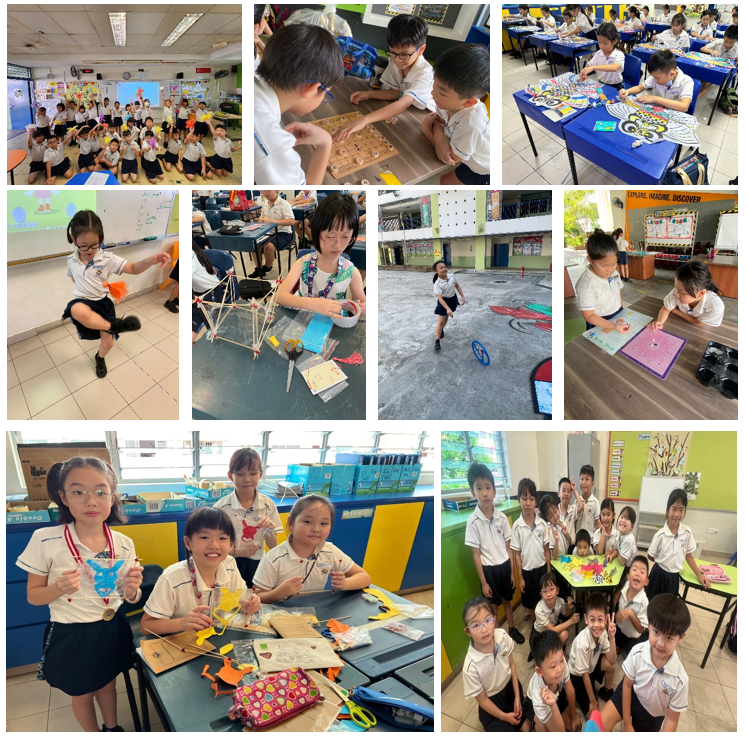
Malay Department
1. Hands-on Activities for Cultural Learning:
• Through interactive, hands-on activities, students can immerse themselves
in the Malay culture. Engaging in these activities helps students connect
with the culture in a meaningful and enjoyable way, allowing them to see
how traditions have evolved over time.
2. Connecting with Families:
• The program encourages students to bring knowledge home, allowing them
to converse with family members and share what they have learnt. This helps
to bridge the gap between school and home, ensuring that cultural traditions
are kept alive within families and across generations.
3. Performance-Based Activities:
• Engaging in poetry recitals, skits, or role-playing activities encourages
pupils to practice speaking Malay in a fun and confident manner. This informal
setting removes the pressure of formal classroom learning and gives students
the chance to experiment with the language.
• Students perform in groups or individually, which also promotes teamwork
and peer motivation. Working with others encourages collaboration, helps
build confidence, and makes the learning experience more dynamic.
4. Building Confidence in Using the Language:
• By participating in both cultural and language activities, students
become more confident to use Spoken Malay in everyday conversations. They
learn to speak with fluency and confidence in informal settings, which
helps them transit to using the language in more formal situations.
|
Primary 1
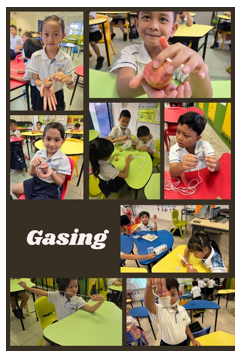
|
Primary 2
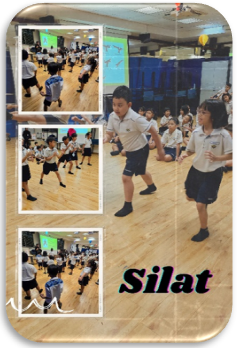
|
|
Primary 3
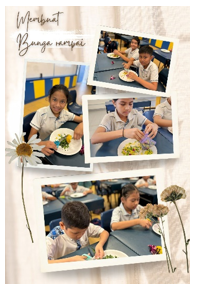
|
Primary 4
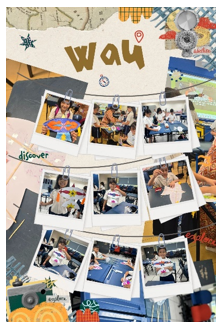
|
|
Primary 5
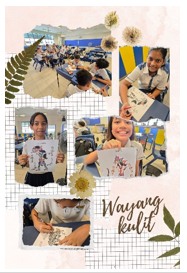
|
Primary 6
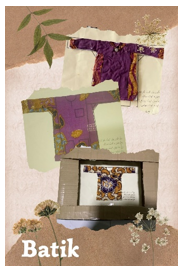
|
Tamil Department
Thematic Based Approach
As part of the cultural experience, students were introduced to thematic based hands-on activities during the Mother Tongue Fortnight week. For instance, they learnt about clay painting, using various colors to bring about the joy of Deepavali celebrations. They also explored various dances from the different states of India. In addition, they learnt about the costumes and props used during this session.
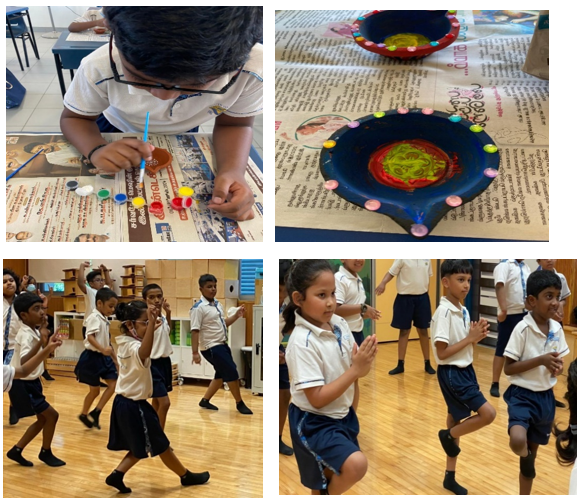
Embracing 21st CC Skills
To inculcate 21st CC skills, P5 students tried Podcast by sharing their views about contemporary issues. They brainstormed ideas in pairs and had a dialogue session with their partner. This was a good opportunity for them to apply their Spoken Interaction skills.
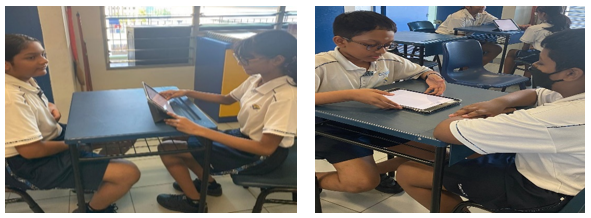
Embracing Nature using Tamil Language
Developing language skills can enhance one’s ability to express their connection with nature, fostering a deeper appreciation and respect for the environment. As such, our P2 students read a big book on conserving trees, and they tried bark shading, followed by a discussion about the different textures of tree bark. As part of exploring Indian spices, they decorated photo frames with Indian spices such as star anise, cardamom and cinnamon.
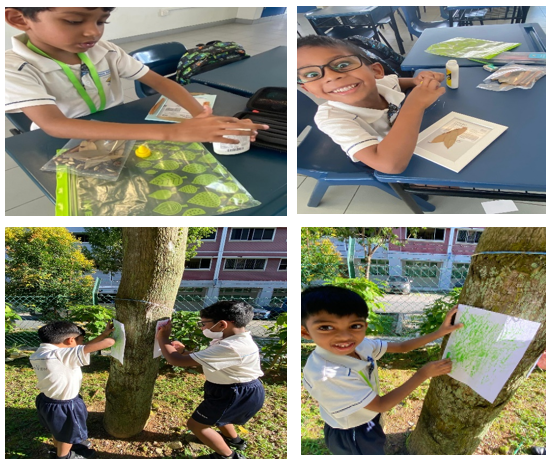
2. Competitions
Chinese Department
The level wide competitions provide students with opportunities to:
-
Deepen their proficiency in listening, speaking, reading, and writing.
-
Showcase their language skills through activities tailored to their developmental stage and language proficiency.
Primary 1: Story-telling – Cultivates active listening
and nurtures expressive oral skills.
Primary 2: Singing – Builds confidence and enhances tone
and articulation through melodic expression.
Primary 3: Text Recital – Strengthens reading fluency,
pronunciation, and emotional expression.
Primary 4: Letter Writing – Develops foundational writing
skills and the ability to articulate thoughts clearly.
Primary 5: Poetry Writing – Encourages creativity and
appreciation for the beauty and rhythm of the Chinese language.
These competitions not only enhance students’ language skills but also
inspire them to value the richness of the Chinese language and its culture.
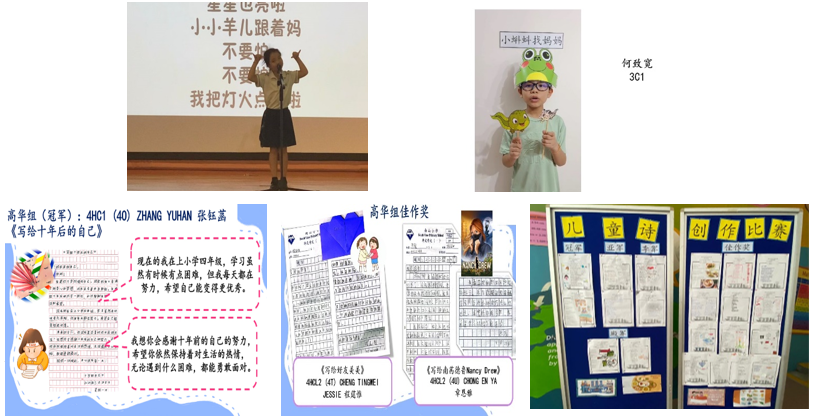
Malay Department
Spelling Bee Competition (Raja Eja):
The termly spelling bee competition is a great initiative to reinforce
the vocabulary learned in the syllabus.
Key Features of the Raja Eja Competition:
-
Focus on Vocabulary:
The competition focuses on the vocabulary from the syllabus, ensuring that students are not just memorizing words, but also understanding their meanings and proper usage. -
Active Learning:
By participating in the competition, students actively engage with the vocabulary, which helps them remember the words more effectively. The process of spelling and recalling the definitions reinforces both spelling and comprehension. -
Healthy Competition:
The competition aspect motivates students to challenge themselves and perform to the best of their abilities. It creates a fun and engaging environment where students can take pride in their vocabulary knowledge. -
Increased Confidence:
Students who perform well in the competition may gain confidence in their ability to use the vocabulary effectively, which can encourage them to use the words in their daily conversations and writing.
Encouraging Parental Involvement: Parents are encouraged to support their children in learning spelling from the list given, which can further strengthen the vocabulary learning process.
-
Creative Writing Competition (Bicara Pena):
The writing competition for upper primary students is an avenue to foster a love for writing while also honing their writing skills.
Key Features of the Writing Competition:
-
Exposure to Different Writing Styles:
The competition focuses on the vocabulary from the syllabus, ensuring that students are not just memorizing words, but also understanding their meanings and proper usage. -
Increased Creativity and Expression:
By participating in the competition, students actively engage with the vocabulary, which helps them remember the words more effectively. The process of spelling and recalling the definitions reinforces both spelling and comprehension. -
Incorporating Feedback:
The competition aspect motivates students to challenge themselves and perform to the best of their abilities. It creates a fun and engaging environment where students can take pride in their vocabulary knowledge. -
Celebrating Achievements:
Recognizing students’ hard work through awards or public acknowledgment can boost their confidence. It fosters a sense of pride in their writing and encourages them to continue improving. -
Encouraging Parental Involvement:
Parents can support their children by helping them brainstorm ideas, reviewing drafts, or providing a quiet space for focused writing. Encouragement from home can boost students’ motivation to participate and excel in their writing.
Tamil Department
Significance of Tamil Literature through Competitions
Tamil epics and literature plays an important role in Tamil Language learning.
Due to modernization, our students tend to neglect the moral values and
culture that are prominent in Indian epics. Keeping this in mind, we encouraged
students to take part in role play competitions as part of our internal
competitions. This served as a good opportunity for them to research about
Thiruvalluvar and Mahakavi to prepare themselves for the competition.
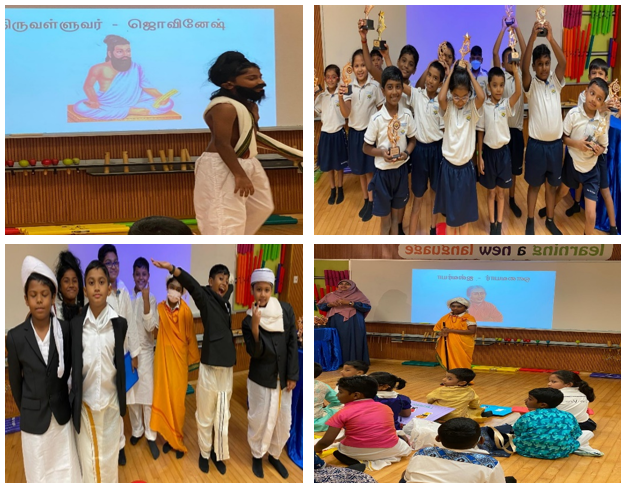
Pongal Competition (by Mediacorp)
Students displayed their creativity and enthusiasm by drawing Pongal pots
& writing essays about their Pongal experience. Our student received
certificates for their participation. Kudos to Hareni from 4 Inspiring,
as she won in the essay writing competition!

3. Cultural Performance Exposure Scheme (CPES)
-
The Cultural Performance Exposure Scheme (CPES) provides students with opportunities to:
-
Experience cultural performances by local and international arts groups, fostering a deeper appreciation for the richness of diverse cultures.
-
Enjoy authentic theatre experience by attending performances in professional theatre settings, enhancing their understanding of the performing arts.
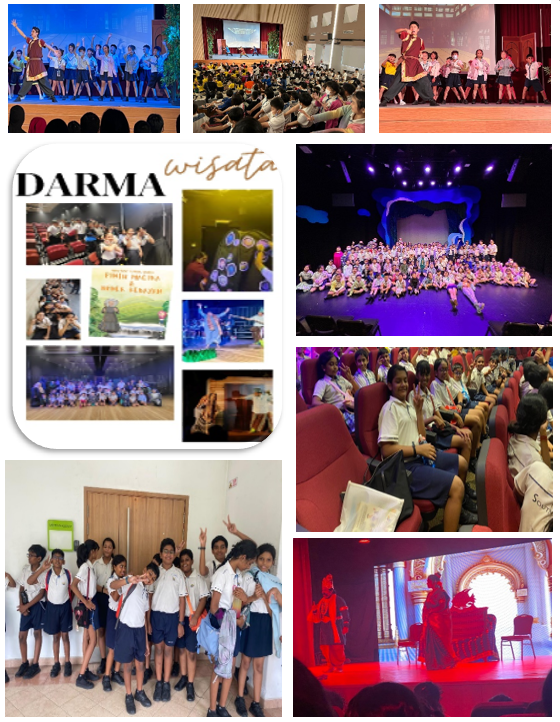
Page last updated: 11 February 2025

